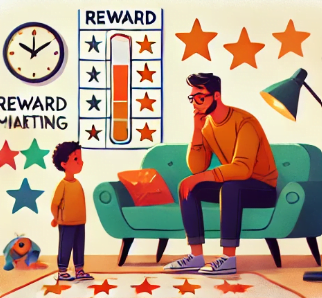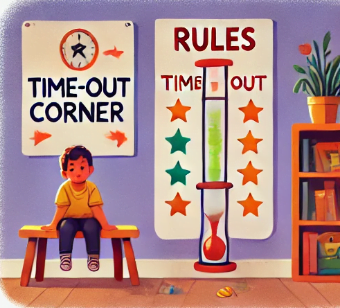I asked three moms what is the hardest part of parenting. All three moms said discipline. Of course, this is an area I struggle with too. I constantly ask myself if my discipline was too harsh or soft. Effective discipline is an essential part of parenting and involves teaching children about appropriate behavior and helping them develop self-control. Here are some key principles for effective discipline:
Consistency
I was a kindergarten teacher for 5 years and at the beginning of the school year the first month we focused on rules. The first week I had to teach the class how to stand up from a chair, line up, get my attention, and everything that helps to run a kinder class smoothly. This was done every day and repeated repeatedly until it became a habit. Why? Consistency is crucial when it comes to discipline. Establish clear rules and expectations for behavior, and consistently enforce them. This helps children understand what is expected and reduces confusion or misunderstandings.
Praise
I love listening to music. Many times as I clean I find myself listening to the same songs and later on a song/chorus comes to my head and I end up having it on my head all day. This is what happens to kids when we make negative or positive comments to them. It plays in their head like a song. If you continue to be negative and that’s all they hear they will grow up listening to the same song play in their head all the time. Flexibility, loyalty, courage, good and bad are words. There is nothing special about any of the words I just listed. The point is to find words that will tell your kids something positive about themselves that they may not be aware of, to help them see a picture of themselves. Praise and rewards can motivate children to continue behaving well and reinforce positive habits. It is important to be specific in your praise, focusing on the behavior or effort rather than general statements.

Natural Consequences
To punish or not to punish is the question all parents ask themselves. Why do we punish? My answer when I ask myself is, “I was punished and I turned out good.” Recently, my daughter talked back to me and slammed the door on me. I was so upset that I went into the room and I lost it with her. I called my mom and told her what happened and told her “Mom I can’t let her think that being disrespectful to me is okay.” Truly, I felt guilty about my reaction towards her. Then with my guilt in mind, I started thinking I should have handled that problem a bit differently. Sounds easy but it’s so hard to come to that conclusion when your daughter slams that door in that instant. I believe that the hardest part is the change we have to make in our attitude. We have to stop thinking of the child as the problem. We have to throw out the idea that because we are adults we always have the right answer. We need to let go of the idea that if we are not strict enough the child will take advantage of us. It takes a lot of faith and humility to believe that if we sit down and connect with our children and listen to what they have to say, together we can come up with a solution that will be right for both of us. Natural consequences allow children to experience the direct outcome of their actions. Instead of imposing punishments, allow children to face the natural consequences of their behavior, as long as it is safe and age-appropriate. This helps them learn responsibility and understand the impact of their choices.

Time-Outs: Time-outs can be an effective discipline strategy when used appropriately. It involves removing a child from a situation when misbehaving or not following the rules. This allows the child to think and move from the emotional to the logical state of mind. Time-outs should be brief, age-appropriate, and used as a chance for the child to calm down and reflect on their behavior.
Clear Communication: When disciplining children, it is important to communicate clearly and calmly. Use simple language to explain why their behavior is unacceptable and what the expected behavior should be. Avoid yelling, or using harsh language, as it can escalate the situation and hinder effective communication.

Teach Problem-Solving Skills: Instead of solely focusing on punishment, use discipline as a teaching opportunity. Help children understand the reasons behind the rules and guide them in finding alternative ways to handle situations or solve problems. This empowers them to make better choices in the future.
Set a Positive Example: Children learn by observing the behavior of their parents or caregivers. Model the behavior you expect from them, such as respect, empathy, and self-control. When you make a mistake, acknowledge it and apologize, showing them that everyone can learn and grow.
Remember, every child is unique, and discipline strategies may need to be adjusted based on their age, temperament, and individual needs. It is important to approach discipline with love, patience, and understanding, focusing on teaching and guiding rather than punishing.



